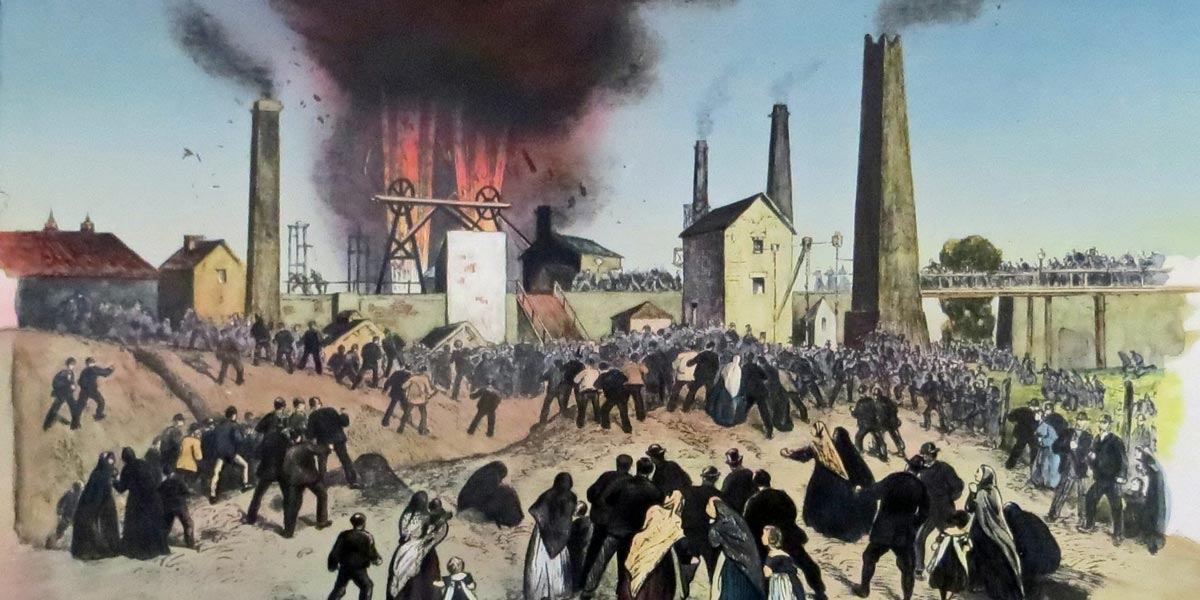The Oaks disaster: bringing organisational histories to life
The worst industrial disaster of the 19th century was all but forgotten as its 150th anniversary approached. Our research produced a film that raised awareness locally, nationally and internationally, helping to create a local memorial and the National Workplace Day of Remembrance.

The issue
In 1866, a series of explosions tore through the Oaks Colliery in Barnsley, killing and injuring hundreds of miners and those who had come to their aid. In total, 361 people lost their lives.
While the Oaks Disaster of 1866 was a historically important event, it was very poorly understood even in scholarly research, and memorial efforts had been fragmented. A number of bodies including the National Union of Mineworkers (NUM); local council departments (Barnsley MBC Heritage and Museums; Dearne Valley Landscape Partnership) and charities (People and Mining) sought to mark the 150th anniversary.
There were plans for a permanent memorial and exhibition. Organisations had begun their own research, but it needed to be integrated with current community concerns. Closer collaboration would benefit the wider research community, and give schools and the general public access to valuable learning resources.
The research
For this project he combined archive research and ethnographic research, along with qualitative meta-analysis of other research sources. He applied his original principles of the ‘critically affective performative text’ to produce a variety of textual materials and a documentary film, Black Snow, with Dr Andrew Lawrence of the University of Manchester.
The outcome
The most concrete outcome of this project is the permanent Oaks Memorial in Barnsley town centre, which is now a significant attraction. Its success has provided inspiration for other efforts to commemorate important but overlooked historical events and institutions in deprived areas, notably the Thorne and Moorends memorial.
This initiative has produced shifts in identity in communities, which are empowering developments in local and regional cultural policy. This has been boosted through TV and radio broadcasts, press and media coverage, festival screenings and multimedia performances totalling over 8 million views by mid-2020. Educational and research materials which the researchers developed have been added to archives, and distributed to schools for curriculum support.
Black Snow
The film Stephen produced won Best Research Film at the Arts and Humanities Research Council’s Research in Film Awards 2018, and is now included in the BFI archive and the British Council Directory. Black Snow has received 78 official selections, awards and competition-wins globally - both for its research and cinematic merits and its social campaigning, humanitarian impact and celebration of unsung heroes.
The film also stimulated a successful campaign for a National Workplace Day of Remembrance: a day to remember all those who have lost their lives at work.
.jpg)
Stephen Linstead
Research Title: Professor of Management Humanities
Stephen Linstead is an organisational ethnographer, researching the contribution of the humanities to organisation studies: history and literature, photography, music and film. He has a particular interest in the ‘dark side’ of organisation and management.
